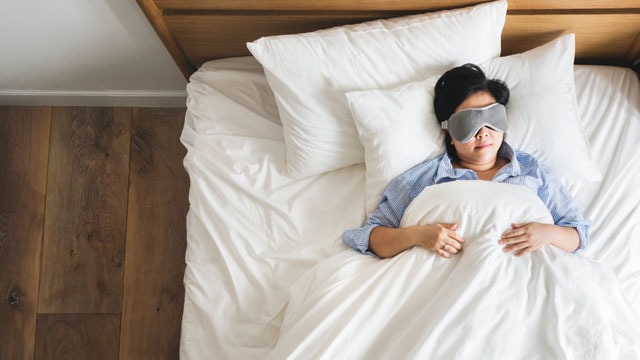Can Sleep Protect Us from Forgetting Old Memories?
From lowering your risk of obesity and cardiovascular disease to improving your concentration and overall daily performance, sleep has been proven to play a critical role in our health. In a new study , researchers at University of California San Diego School of Medicine report that sleep […]
From lowering your risk of obesity and disorder to improving your concentration and overall daily performance, sleep has been proven to play a critical role in our health. during a new study, researchers at the University of California San Diego School of drugs report that sleep can also help people to find out continuously throughout their lifetime.
Writing in eLife, researchers used computational models capable of simulating different brain states, like sleep and awake, to look at how sleep consolidates newly encoded memories and prevents damage to old memories.
“The brain is extremely busy once we sleep, repeating what we’ve learned during the day. Sleep helps reorganize memories and presents them within the most effective way. Our findings suggest that memories are dynamic, not static. In other words, memories, even old memories, aren’t final. Sleep constantly updates them,” said Maksim Bazhenov, PhD, lead author of the study and professor of drugs at UC San Diego. “We predict that in the sleep cycle, both old and new memories are spontaneously replayed, which prevents forgetting and increases recall performance.”
Bazhenov said that memory replay during sleep plays a protective role against forgetting by allowing equivalent populations of neurons to store multiple interfering memories. “We learn many new things on a day to day, and people’s memories compete with old memories. To accommodate all memories, we’d like sleep.”
For example, imagine learning the way to navigate to a parking zone by going left at one-stop sign and right at one traffic signal. The subsequent day, you’ve got to find out the way to get to a special parking zone using different directions. Bazhenov said sleep consolidates those memories to permit recollection of both.
“When you play tennis, you’ve got a particular motor memory. If you then find out how to play golf, you’ve got to find out the way to move equivalent muscles differently. Sleep makes sure that learning golf doesn’t erase the way to play tennis and makes it possible for various memories to coexist within the brain,” said Bazhenov.
The authors suggest that the restorative value of sleep could also be what’s lacking in current state-of-the-art computer systems that power self-driving cars and recognize images with performances that far exceed humans. However, these AI systems lack the power to find out continuously and can forget old knowledge when new information is learned. “We may have to feature a sleep-like state to computer and robotic systems to stop forgetting after new learning and to form them ready to learn continuously,” said Bazhenov.
Bazhenov said the study results could lead to developing new stimulation techniques during sleep to enhance memory and learning. This might be particularly important in older adults or persons affected by learning disabilities.
“While sleep is certainly involved in many important brain and body functions, it’s going to be critical for creating possible what we call human intelligence — the power to find out continuously from experience, to make new knowledge and to adapt because the world changes around us,” said Bazhenov.
Reference
González et al. (2020). Can sleep protect memories from catastrophic forgetting? eLife. DOI: https://doi.org/10.7554/eLife.51005
This article has been republished from the subsequent materials. Note: material may are edited for length and content. For further information, please contact the cited source.
Photo credit: rawpixel






